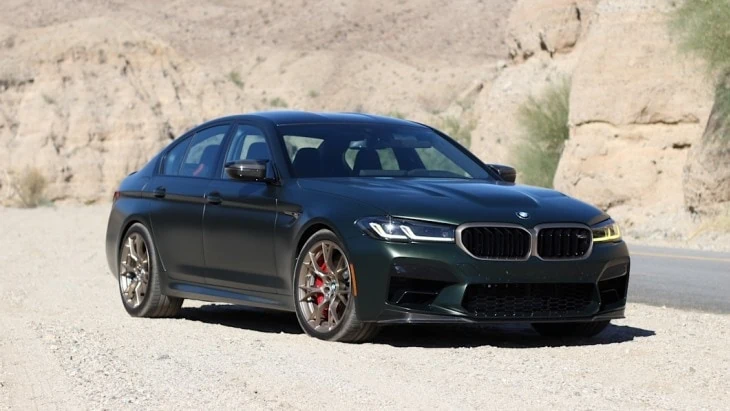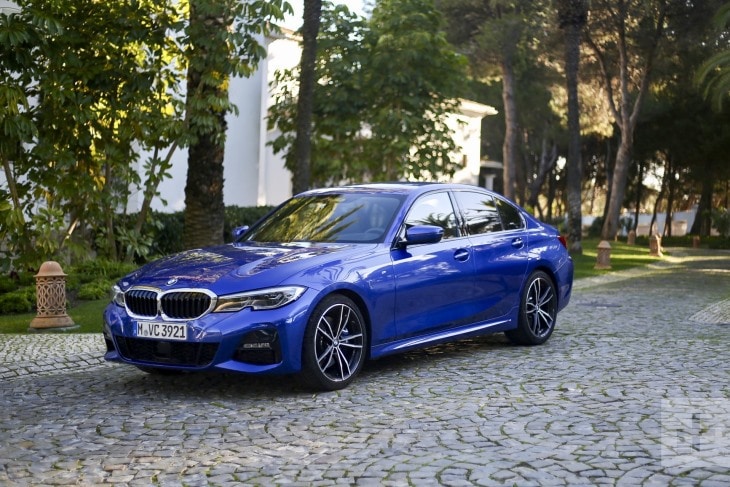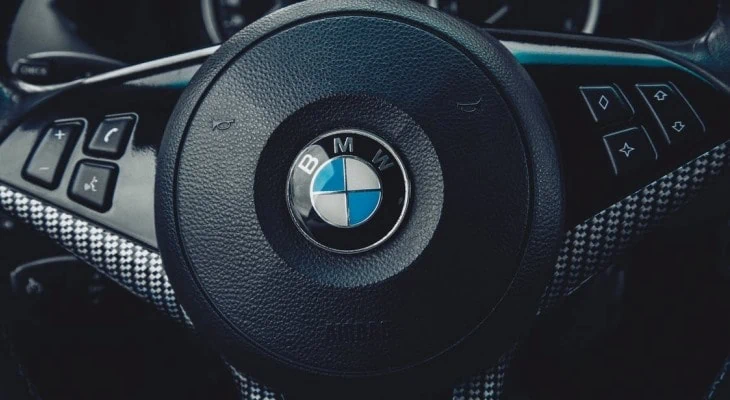Known for its motto, “The Ultimate Driving Machine”, BMW has had a mixed reputation in the past. On one hand, they are known for sturdy, powerful, performance-based vehicles. On the other hand, however, they have had a reputation for being unreliable and difficult to maintain in the past.
Some owners swear by BMW and their reliability, though! Just how reliable is BMW? Are the newer models more reliable? Which models are the best for reliability? The worst? How much does it cost to repair a BMW? What’s most likely to fail in a BMW? We’ll look at all this and more!
Newer BMW models are much more reliable than previous models. On average, BMW’s last 150,000-200,000 miles, or 10-13 years. This is considered a normal lifespan for modern cars. However, some models, especially the BMW E390, have been reported to stay on the road for up to 250,000 miles, or 17 years with no major issues or failures. As with any vehicle, it is important to follow the recommended maintenance schedule in order to maximize the lifespan of the car. BMWs are expensive to repair, much like other foreign, luxury vehicles.
Table of Contents
- How Many Miles Do BMWs Last?
- How Many Years Does a BMW Last?
- How Long do BMW Engines Last?
- Do BMWs Last Longer than Other Cars?
- How Reliable Are BMWs?
- Are BMWs Reliable After 100k Miles?
- Do BMWs Break Down a Lot?
- Are BMWs Expensive to Repair?
- What Are the Common Problems with BMWs?
- Do BMWs Hold Their Value?
- How Many Miles Can a BMW 3 Series Last?
- How Many Miles Can a BMW 5 Series Last?
- What Makes BMW Unique?
How Many Miles Do BMWs Last?

Typically, BMWs will stay on the road for 150,000-200,000 miles. However, some BMW owners reported driving their vehicles for up to 250,000 miles with no major issues.
As with any car, driving habits and maintenance make a difference in vehicle longevity. Check your BMW’s owner manual, and follow the suggested maintenance schedule. Longevity with a BMW is very dependent on proper maintenance and the use of certified parts.
How Many Years Does a BMW Last?
The national driving average is 15,000 miles per year. Do the math, and you can see that BMWs should last 10-13 years, or even longer.
There have been several reported cases of BMWs that were 20 years old! In most of these cases, the vehicles had a single owner who followed a diligent maintenance schedule and used BMW-certified parts for repairs.
How Long do BMW Engines Last?
The lifespan of the vehicle is dependent on the lifespan of the engine. After all, replacing an engine is very expensive. If the engine goes, that’s usually the end for the vehicle.
Gasoline Powered Engines
The BMW engine should last the lifetime of the vehicle, with proper care and maintenance. Make sure the oil is changed every 3,000 miles, or six months; whichever comes first. A properly cared for the engine will give your vehicle a long life.
Diesel Powered Engines

BMWs with diesel-powered engines have a longer life than gas-powered BMWs. Diesel fuel acts like a self-lubricant within the engine. This helps the engine last longer with less maintenance. Diesel-powered cars can be expected to last from 250,000-300,000 miles.
Do BMWs Last Longer than Other Cars?
For the purpose of this article, we’ll compare BMW with other similar luxury car manufacturers. Luxury cars are often considered more unreliable than other vehicles, but this is typically due to more technology and components that are subject to issues and may need repairs.
Mercedes
Mercedes is another German manufactured luxury car. BMW and Mercedes have similar expected lifespans, that is around 150,000-200,000 miles.
However, according to JD Power ratings, Mercedes may last longer than BMW due to fewer major repair issues, and a higher dependability rating.
According to this study, Mercedes had 136 problems per 100 vehicles, while BMW had a whopping 181 issues per 100 vehicles. Therefore, Mercedes had a higher ranking for reliability and longevity.
Porsche

Reliability comparisons vary model by model, but, overall, Porsche is considered to be a more reliable brand than BMW. In fact, Porsche was awarded a five-star dependability rating in the JD Power study!
The Porsche 911 is considered to be one of its most reliable cars with the longest lifespan. The Cayenne and Panamera have much lower reliability ratings and tend to not last as long.
However, if you look at the repair costs, BMWs typically cost less per year to repair and maintain than Porsche.
Infiniti
BMW has a much longer history than Infiniti with over one hundred years of car manufacturing. Nissan launched Infiniti as its luxury car line in 1989. As a result, BMW has had more time to develop technology, and they have more car models available than Infiniti.
BMW is the winner when it comes to reliability, with more models with higher dependability ratings than Infiniti. In fact, Infiniti has quite a few cars with only 2 or 2.5 stars out of 5 for reliability, according to JD Power.
Infiniti comes with a lower price tag, and may also have lower repair costs. BMW is known to have a high price tag for parts and repairs.
Lexus
Like Infiniti, Lexus is a Japanese brand. BMW and Lexus both manufacture upscale vehicles with luxury features. Lexus costs a little less than BMW, and some models have slightly higher reliability ratings.
However, U.S. News and World Report resoundingly places BMW as the clear winner when comparing Lexus and BMW. BMW makes a higher quality car that is more likely to go the distance.
How Reliable Are BMWs?
BMW’s reputation for reliability is a little shaky. However, their more recent vehicles have improved longevity and reliability. Here’s what you need to know about BMWs and dependability.
Reliability Ratings
In spite of their earlier reputation, BMW is now rated extremely high in terms of reliability. J.D. Power ranks BMW high in terms of reliability and quality since 2016.
The dependability ratings are based on annual reports from more than 80,000 vehicle owners of 3-year-old vehicles. The study looks at the type and number of problems owners experience with their vehicles. The fewer the problems, the higher the score.
BMW was consistently ranked among the most reliable brands from 2017-2021. In 2021, BMW received five awards from J.D. Power, including J.D. Power quality award, and the J.D. Power dependability award.
AutoList also ranks BMW high in terms of reliability. They noted BMW’s significant improvements in the last decade. It is deemed the most reliable luxury car manufacturer. BMW’s reliability scores on J.D. Power and Consumer Reports place it above Audi, Mercedes Benz, and Infiniti.
Most Reliable Model

The BMW 3 Series is a favorite for reliability. In particular, the BMW E390 E-Series ranks number one as BMW’s most reliable vehicle.
The engine in the E390 is not turbocharged. This makes it less responsive, but also more reliable. The 325i, which is the base model, and the 328i both have BMW’s N52 engine. This is considered to be BMW’s most reliable engine.
Least Reliable Model
The BMW X5 is the winner (or loser, if you will) of the least reliable award for BMW. It pops up on a lot of the cars-to-avoid, low-reliability lists.
The main issue seems to be its 3.0L engine. It frequently suffers from turbo failure and fuel injector failure. The result? A vehicle that stops running or won’t run.
The BMW X5 came out in 1999 and was immediately popular. It won car of the year in 1999. The X5 continues to be popular, though certain years have low-reliability ratings. In particular, Consumer Reports gives the 2019 X5 a horrifying 1 out of 5 rating for reliability. The 2014 and 2015 models also ranked low, with only 2 out of 5 for reliability.
In 2019, BMW redesigned the engine and turned things around for the X5. It now features a turbo V8 engine with 523 horsepower. Consumer Reports said the newer X5’s are the best vehicles they’ve ever tested, and gave the 2020 model a 4 out of 5 for reliability.
Are BMWs Reliable After 100k Miles?
A well-maintained BMW should last well past 100,000 miles. If you keep up with the recommended maintenance schedule, it should stay on the road for another 100,000 miles or even more!
However, maintenance for BMWs is a bit more extensive and costly than is expected for your average car. Some owners allow the routine vehicle care that BMWs require to lapse. Be aware of the service record if you are going to buy a used BMW with high miles.
Do BMWs Break Down a Lot?
According to RepairPal, BMWs only break down slightly more than the average car. BMWs visit the repair shop for unexpected repairs 0.9 times per year, as compared to 0.4 times per year for the national vehicle average.
There is a 15 percent chance of a BMW repair being considered severe. The national average for all vehicles is 12 percent. The severity of a repair is measured by its cost. If it is more than three times the price of annual repairs, it is considered a severe repair. Severe repairs are usually due to a major system issue.
Are BMWs Expensive to Repair?
BMWs are more expensive to repair than most domestic vehicles. However, this is true across the board for luxury vehicles, especially foreign luxury vehicles.
The average annual repair cost for BMWs is $968. In comparison, the national average repair cost is $652. This number reflects both regularly scheduled maintenance costs and unscheduled repairs. One of the reasons BMW has a higher annual cost number is because the parts are more expensive, and they need to be serviced by a BMW certified technician.
What Are the Common Problems with BMWs?

There are several commonly seen problems in BMWs. If you suspect any of these problems with your vehicle, it is best to take it to a BMW certified repair professional. Here’s what to anticipate for potential repairs.
Engine Cooling System
BMW owners report overheating issues. These are often due to a faulty water pump, failed or clogged coolant systems, or coolant leak. You may notice the engine overheating light on the dashboard or a high temperature on the temperature gauge.
Listen for thumping or ticking sounds from under the hood. These could be due to a failure of the thermosensor. Another sign of an overheated engine is steam coming from the front of the vehicle.
Oil Leaks
Sometimes there is a problem with leaky valve cover gaskets in BMWs. Other causes of oil leaks could include a fuel pump failure. Watch for oil puddles, or pay attention to any burning odor from the engine compartment. These could indicate that there is a problem with the engine.
Steering Wheel Vibrations
The BMW 3 series has an issue with the thrush arm bushings failing around 75,000 miles. These small rubber pieces are an important part of the suspension system. This causes the steering wheel to vibrate during braking.
Tail Lamp Assembly
If you see a “Check Rear Lamp/Brake Lamp” message on your dashboard, it usually means that there is a faulty connection at the tail lamp circuit board. This is usually a simple fix that involves cleaning corrosion from the connection.
Do BMWs Hold Their Value?
Unlike many other foreign, luxury cars, BMW does not hold its value very well. iSeeCars published a study of the top ten cars with the highest depreciation values. Four of the ten cars with the worst depreciation rate were BMWs.
The four BMWs that appear on the list had an average depreciation of 70.1 percent over five years. The national average five-year depreciation rate across all vehicles is 60 percent. So, BMW has a much higher depreciation rate.
There may be a logical reason for this. First of all, many luxury cars are leased. The drivers then turn in the vehicle to lease a newer model after three to five years. This results in a flood of used vehicles on the market. It’s a matter of supply and demand. If there are a lot of used BMWs, it will drive their overall resale value down.
How Many Miles Can a BMW 3 Series Last?

The BMW 3 Series vehicles are considered to be sturdy, reliable cars that can last for a really long time when properly maintained. They can stay on the road for 200,000-250,000 miles or around 13-17 years.
Some proud BMW owners even report 3 series vehicles that have over 300,000 miles! However, this is not the norm. Keep in mind, properly maintaining a BMW requires strict adherence to the recommended maintenance schedule.
Consumer Reports give the 2021 BMW 3 series a 3 out of 5 rating for dependability, and names it one of the best sports sedans available.
How Many Miles Can a BMW 5 Series Last?
The BMW 5 series is less reliable and sturdy than the 3 series. They typically last 150,000-200,000 miles or 10-13 years. This makes their longevity about the same as the national average, and considerably less than the 3 series.
What’s more, BMW 5 series vehicles with 4-cylinder engines will break down more frequently, and have shorter lifespans. Look for a 5 series with a V8 or inline-6 engine for better dependability and longevity.
The BMW 5 series has improved its reliability ratings recently. In 2021, Consumer Reports gave the 5 series a 3 out of 5 for dependability.
What Makes BMW Unique?
BMW has a loyal following, and they are the world’s 14th largest producer of motor vehicles. What is so special about these German cars?
History
BMW stands for Bayerische Motoren Werke AG, which roughly translates to Bavarian Motor Works. This vehicle and motorcycle manufacturing company is located in Munich, Germany. The company was founded by Gustav Otto in 1919 as an airplane engine manufacturer.
BMW started manufacturing vehicles in 1928. The New Class Sedans launch in 1962 was the start of BMW’s sports-oriented vehicle manufacturing.
The BMW 5 Series midsize sedan was introduced in 1972. The BMW 3 Series compact sedan made its debut in 1975, then the BMW 6 series luxury coupes in 1976, and the BMW 7 Series large luxury sedans in 1978.
BMW’s 2-seat roadster, the BMW Z3 was created in 1995. The first SUV, the BMW X5 was manufactured in 1999.
Special Features

There’s a reason BMW calls itself “The Ultimate Driving Machine”! BMW introduced the first mass-produced turbocharged gas engine in 2006. Most other car companies didn’t start producing turbocharged engines until 2010 or later.
BMW introduced a hybrid vehicle in 2010, the BMW ActiveHybrid 7, and an electric car, the BMW i3, in 2013. They have continued to have a reputation for technologically advanced vehicles, and engineering innovation.
Final Thoughts
German manufacturer BMW creates a sturdy, reliable vehicle that will last at least as long as other similar vehicles, if not longer! Maintain your BMW, and it should reward you with a long life. As with most foreign, luxury vehicles, proper maintenance is the key to a long life.
For increased longevity, the BMW 3 series has a longer expected lifespan than the BMW 5 series. Expect at least ten years or 150,000 miles from your BMW.

